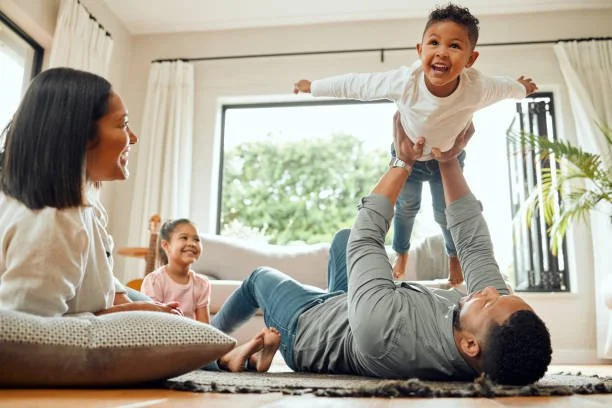Less is More: Simplifying Life with Children
(Written by Emily Thomas)
Being one to state the obvious, any life that includes children is going to be complicated. On top of parenting your littles through every stage of being - you inevitably will always have toys strewn about, laundry to be folded, dishes in the sink and conflicting events on the calendar. The busyness of our lives slowly sneaks up on us and can become “too much” very quickly. That “too much” can be overwhelming and stressful. Whether it’s too much stuff, too much information, too many activities or too many choices. Having and doing too much can overwhelm and lead to unnecessary stress in and out of the home. We know that simplifying childhood protects our children’s mental health (and our own). As caregivers we learn to read when our kids are overwhelmed and we have the power to help by giving them time and space.
Keep It Kid-Friendly - While it’s healthy for children to be aware of the world around them, we need to be conscious that it is on a level that they can comprehend and that they have the tools to cope with. Exposing our children to age inappropriate information will not “prepare” our kids for the world but rather alarm and paralyze them if they feel helpless or unable to process the content. So, what does this look like? Not exposing kids to world events that can induce anxiety over a situation they can’t rationalize, waiting to catch-up with news after the kids go to bed and limiting adult conversations about our concerns and worries around our kids are all simple way to keep it kid-friendly.
Prioritize Downtime - Sometimes we schedule things back-to-back-to-back, so that every minute of every day is planned out. This can obviously lead to stress and problems. Instead, try shifting it and only schedule in as little as possible each day. Leaving space between events, appointments or activities, so that your day moves along at a more leisurely pace. Maybe start getting ready earlier than necessary, so as to not rush around and leave some time to transition from one thing to another. A more spaced-out schedule is much more relaxing than a cramped one. Having dedicated family time is another way to promote downtime and connecting with your children. Try to find regular times in your schedule when you do nothing else but spend time together as a family.
Let Go of the Stuff - Decluttering our homes is perhaps the most popular point of discussion when the topic is “simplifying”. Toys are a no-brainer place to start, and also the most satisfying. The fewer toys kids have, the more they play. With fewer toys and less clutter, they can better see and appreciate what they have. It becomes easier for them to immerse themselves deeply in imaginative play. The first step in decluttering toys is to identify which are truly important to the kids. Ones they always reach for or that hold a special place in their hearts. The second step is that there should be a home for everything. This takes some practice and both caregiver and child can be active participants. This means that if they’re going to put away a toy, they should know where its home is, and put it there. It is a useful concept for adults, too. This helps keep things organized and contained. With fewer items and a home for each, they can find things more easily, they can see what there is to play with, and they can own better quality stuff. Remember, the play is in the child, not in the toy.
Messy Homes Feel Like Love - Your home is meant to be lived in and loved, where memories are made and experiences shared. Kids don’t care about having a spotless home. They want to play, laugh, and be loved. When the kids are happy, playing, and laughing there really is no reason to feel guilty that you didn’t get to fold all the clothes that day. Your home got messy because people are living in it! When your home is spotless it loses that “lived in” feeling. It is healthy and positive when your kids can feel like they can get out their toys and play without ruining a spotless house. Or when guests can come over and not worry about messing anything up. By not obsessing over every mess you are giving yourself the energy you need to keep up with your kids. These two elements can go hand- in-hand - allow the kids to make a mess and model taking care of your space. Kids are not perfect. They will inevitably make a mess. Not having everything perfectly clean teaches our kids that we don’t always have to be perfect. That includes practicing that keeping a perfect house is not attached to self worth!
Giving ourselves compassion and grace in this season of our lives is incredibly important. Slowing down to simplify helps the entire family create the time and space they need to make life more fulfilling. When you simplify the family’s world, you make space for positive growth, creativity and relaxation.

